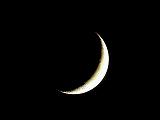| |
|
6 Julho 2008 18:06 |
| Kfeto, this sentence is weird.
"If I loved you, it would rain in this city" would make more sense. |
|
6 Julho 2008 18:10 |

kfetoNúmero de Mensagens: 953 | yes but that not what it says.
it not in the present and it's not conditional.
maybe like this then:
|
|
8 Julho 2008 23:40 |

gamine Número de Mensagens: 4611 | I don't know which of the French or English trannslation is the right one, but one of them is wrong : The French translation gives this: "When I have loved you in this town, it was raining". So one of them is wrong; At least it's my opinion
even if it seems that I"m the only one, who think that way. |
|
9 Julho 2008 00:18 |
| You're not the only one who think this way, Gamine  |
|
9 Julho 2008 00:49 |
| When i loved u in that city,was raining |
|
9 Julho 2008 01:32 |

kfetoNúmero de Mensagens: 953 | ok, i moved "in this city"
I translated from turkish btw |
|
9 Julho 2008 01:48 |

gamine Número de Mensagens: 4611 | Why "city" and not "town". I know ,crazy question,
byt the word "town" is used quite often. If you use "city" it means that it's a big, big town. Up to you, I don't understand turkish.  
GOOD EVENING. |
|
9 Julho 2008 01:53 |

kfetoNúmero de Mensagens: 953 | no that's a reasonable question
because the turkish says sehir which is a city
is this the reason why you voted against? |
|
9 Julho 2008 05:51 |

LiláNúmero de Mensagens: 3 | When i loved you in this city, it would rain |
|
9 Julho 2008 07:49 |
| I wouldn't use : It would rain, but -> "It rained" since it's written in past tense |
|
9 Julho 2008 08:02 |
| When... it was raining.  |
|
9 Julho 2008 09:45 |
| The tense is incorrect. It should be "when I loved you in this city, it was raining." This is according to the Russian translation... |
|
9 Julho 2008 11:07 |
| I voted wrong for this one, but I voted according to the French version. About the Turkish one I coul'nt say, as I don't know Turkish.
But from the French text, the English version would read : "When I loved you in this city, it was raining" (thus a different meaning here with the english)
Please also note : "quand je t'ai aimé" could also describe the act of making love to someone, and so it would be translated by "when I was making love to you..."
|
|
9 Julho 2008 15:58 |
| would je u pogresnom vremenu
|
|
9 Julho 2008 19:18 |
| When I loved you in this city, it was raining |
|
9 Julho 2008 17:30 |
| |
|
9 Julho 2008 17:59 |
| I agree with Via Luminosa (I, too, compare with the Russian translation) |
|
9 Julho 2008 18:07 |

kfetoNúmero de Mensagens: 953 | I know the tense is not the same as in french but i translated according to the original turkish.
which is in not the simple past, but the AORIST(timeless) past.
and it doesn't say when (-ken) but says( -im zaman)so it's closer to "the time(s) that/whenever"
|
|
9 Julho 2008 20:17 |

gamine Número de Mensagens: 4611 | NO!! OF COURSE NOT.I voted against because of the difference between the French and English translation and as I don't understand Turkish!!!  |
| |
9 Julho 2008 20:46 |
| Whenever 
When  |

